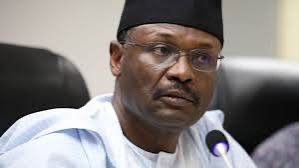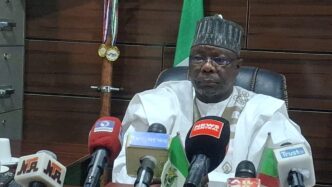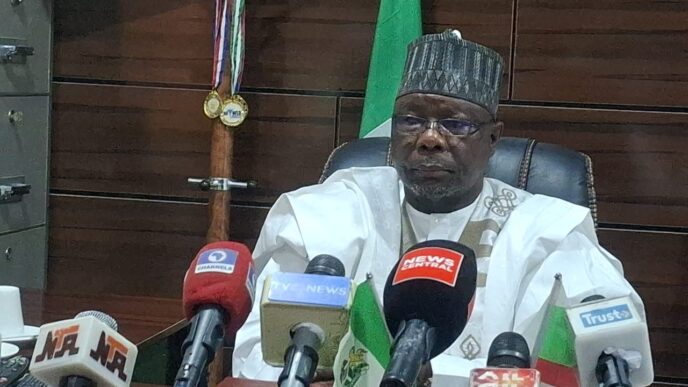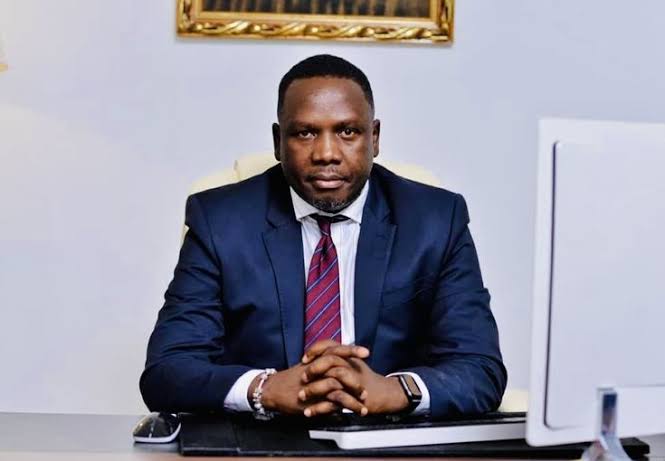The Independent National Electoral Commission (INEC) has assessed the decade-long leadership of its former Chairman, Professor Mahmood Yakubu.
Gatekeepers News reports that INEC described his tenure from 2015 to 2025 as one of the most transformative periods in Nigeria’s electoral history.
In two detailed reports — Election Management in Nigeria: 2015–2025 and Innovations in Electoral Technology: 2015–2025 — the Commission noted that the last ten years ushered in groundbreaking changes that enhanced technology adoption, legal frameworks, voter accessibility, and public confidence in the electoral process.
Appointed by President Muhammadu Buhari in November 2015 and reappointed in 2020, Yakubu became the first INEC chairman to serve two full terms.
His tenure covered two general elections — 2019 and 2023 — as well as 19 off-cycle governorship elections and numerous supplementary and bye-elections across 4,500 constituencies nationwide.
According to the reports, Yakubu’s administration introduced far-reaching innovations such as the Bimodal Voter Accreditation System (BVAS), INEC Result Viewing Portal (IReV), and the INEC Voter Enrolment Device (IVED), which collectively enhanced transparency and accountability in the nation’s elections.
In his foreword, Yakubu acknowledged that the Commission contended with persistent challenges, including electoral violence, vote buying, and conflicting court orders.
He said, “The decade between 2015 and 2025 has been one of the most momentous in the history of election management in Nigeria… Nevertheless, the Commission responded with reforms, stakeholder engagement, and improved coordination with security agencies.” The reports detailed how INEC transitioned from a largely manual system to a digitally driven election management structure.
The IVED, introduced in 2021, modernised voter registration by enabling biometric and facial data capture, while the Continuous Voter Registration (CVR) Online Portal allowed citizens to pre-register remotely — a first in Nigeria’s electoral experience.
To further ensure credible accreditation, INEC launched the BVAS in 2021, enabling dual biometric verification and instant result upload to IReV, thereby strengthening transparency. Backed by the Electoral Act 2022, these innovations entrenched accountability and public oversight in the electoral process.
The Commission also developed systems such as the Election Results Management System (ERMS), Collation and Returning Officers Management System (CROMS), INEC Operations Management and Information System (IOMIS), and Political Finance Reporting and Auditing System (PFRAS) — all designed to enhance efficiency, staff management, and political finance monitoring.
Another major milestone under Yakubu’s leadership was the passage of the Electoral Act 2022, which formally recognised electronic result transmission and empowered INEC to deploy technology for voter registration, accreditation, and result management. The Act, the Commission said, strengthened INEC’s autonomy and aligned Nigeria’s electoral process with global best practices.
During his tenure, INEC also expanded the number of polling units for the first time in 25 years, increasing them from 119,974 to 176,846, a move that improved voter access and reduced congestion during elections.
Beyond technology, Yakubu’s era focused on institutional reforms and inclusion. The Commission established the INEC School (INECSCH) and Virtual Electoral Training System (VETS) to train electoral officers, security agents, and ad hoc staff.
It also introduced inclusive measures for persons with disabilities (PwDs), internally displaced persons (IDPs), women, and youths through the use of braille ballot guides, magnifying lenses, and priority voting systems.
While acknowledging these achievements, INEC admitted that challenges such as insecurity, vote buying, multiple litigations, and logistical setbacks occasionally disrupted the process. Between 2019 and 2023, the Commission recorded attacks on over 50 of its offices, yet it responded with resilience and innovation.
INEC concluded that it would continue to strengthen partnerships with international and regional electoral bodies to enhance knowledge sharing and sustain progress in electoral technology and governance.









